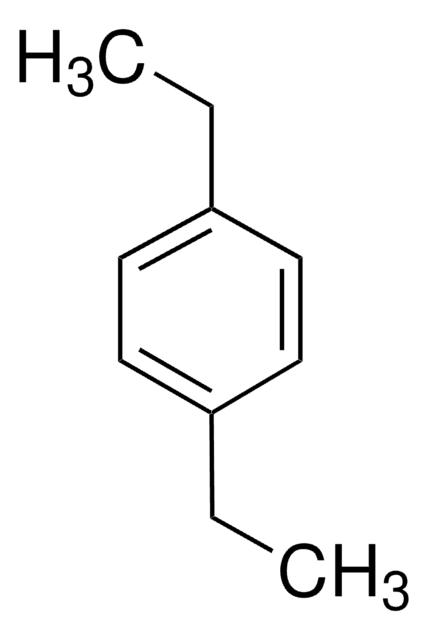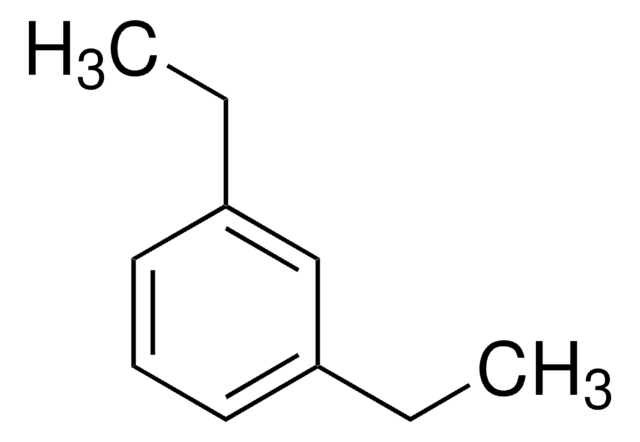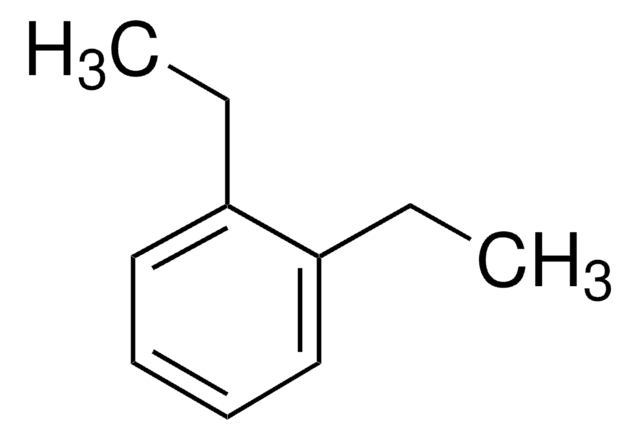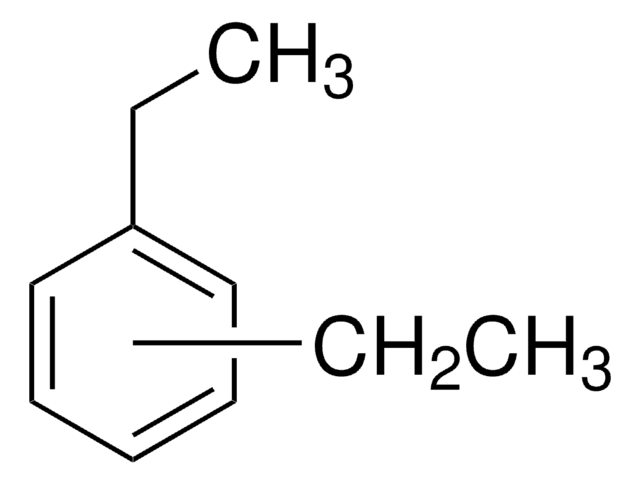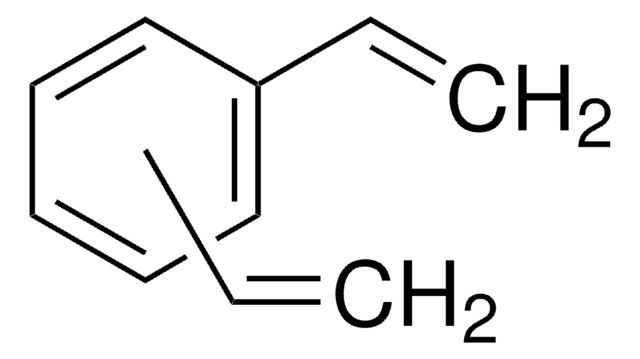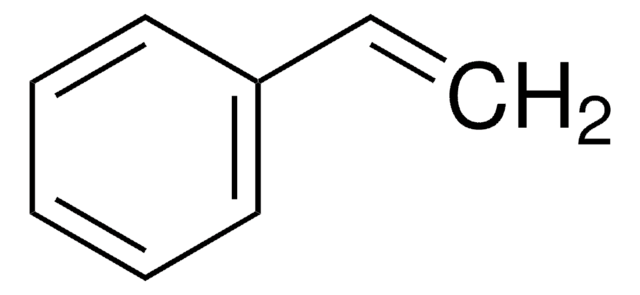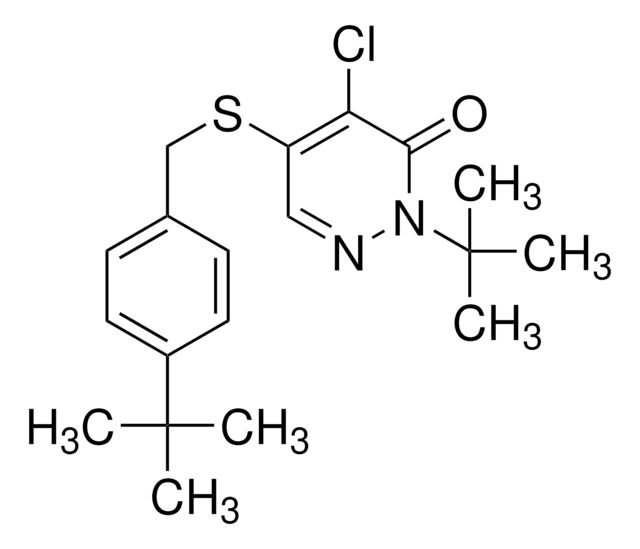About This Item
Recommended Products
grade
technical grade
Quality Level
assay
92%
form
liquid
autoignition temp.
743 °F
refractive index
n20/D 1.502 (lit.)
bp
183 °C (lit.)
mp
−31 °C (lit.)
density
0.88 g/mL at 25 °C (lit.)
SMILES string
CCc1ccccc1CC
InChI
1S/C10H14/c1-3-9-7-5-6-8-10(9)4-2/h5-8H,3-4H2,1-2H3
InChI key
KVNYFPKFSJIPBJ-UHFFFAOYSA-N
Looking for similar products? Visit Product Comparison Guide
Related Categories
signalword
Warning
hcodes
pcodes
Hazard Classifications
Flam. Liq. 3
wgk_germany
WGK 2
flash_point_f
131.0 °F
flash_point_c
55 °C
ppe
Eyeshields, Faceshields, Gloves, type ABEK (EN14387) respirator filter
Certificates of Analysis (COA)
Search for Certificates of Analysis (COA) by entering the products Lot/Batch Number. Lot and Batch Numbers can be found on a product’s label following the words ‘Lot’ or ‘Batch’.
Already Own This Product?
Find documentation for the products that you have recently purchased in the Document Library.
Our team of scientists has experience in all areas of research including Life Science, Material Science, Chemical Synthesis, Chromatography, Analytical and many others.
Contact Technical Service